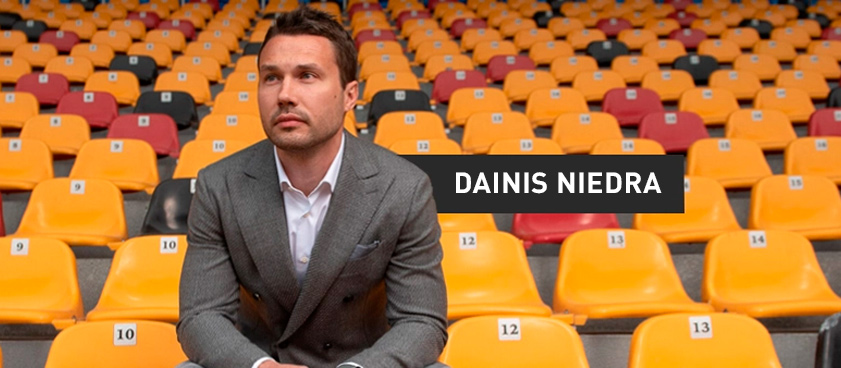How I got into the business!

A growing tradition in Latvia is for established companies to have “shadow days” at their workplaces. High school students spend a whole working day at a company in an industry which interests them. Sometimes we at Enlabs get some applications too. It seems that interest in the gambling industry is growing as the market matures. The Internet has many fashionable areas which overlap with gambling, and we get exposure from influencers, athletes, bloggers etc. To avoid conflicts with company values and breaking our moral principles, I only accept students who are legally able to gamble themselves. One of the most common questions I get asked is “How did you get into the business?”. Young people can not imagine what a path to the world of betting and gambling looks like as there is no Betting University and no one writes theses about it.
I guess my way in the betting business started when I was about 20 and had just finished my 2nd year at university (I intended to be a civil engineer). A new company that was planning on developing the largest night club in Riga made me an offer to join them. This was a unique opportunity because there had never been such a place that would open its doors three times a week for 2-3 thousand of guys and girls looking for some entertainment. Several uneventful years passed then suddenly a few days before the new year of 2008 the entire complex (a casino and two big night clubs) burnt to the ground. That is an interesting experience. You fall asleep after a night shift and when you wake up on the next day, you learn from an SMS that there is no place to go to work anymore.
We took a strategical decision to enlarge the complex and diversify the business while rebuilding work was ongoing. The complex became twice the size that it used to be. We opened a hotel, spa, several pubs and restaurants, as well as a gym and a 15 table poker club. It was a mini Las Vegas in the centre of Riga. I used to play online and offline poker with small limits back then, so I could understand what gamblers wanted, the market potential, and how to run the business itself.
The law was formed in the 1990s and back then the government didn’t see a difference between a roulette table and a club poker table. It meant that we needed a full casino license and that we had to pay all the necessary taxes. Most of the taxes were a fixed amount. By human resources, I mean access to qualified, trained, skilled labour. We just didn’t have it. Those few people who could deal poker on a proper level either already worked in a casino or worked as freelancers for the International Poker series all across Europe. To maximise our potential we needed the law to be relaxed so we began a long journey with the regulator providing them with many suggestions, amendments, explanations, calculations, and so on. We created the poker federation and soon I became the head of that federation. To tackle the problem of human resources we opened a poker dealers school. We accepted 30 students who were trained from the ground up. I am very proud that most of them became professional dealers on the International stage and worked at all the large Series in London, Barcelona, Prague etc.
The poker club was growing quite fast with new members joining every week, and this was depriving small clubs of their clients. Four months after the opening a regular Friday tournament was abruptly halted by a special forces operation. They carried out searches and removed all the equipment. A criminal investigation was initiated, charges were brought against us for organizing illegal gambling. In a way luckily for us, this all happened just two weeks before the first Latvian open poker championship. In that short period of time, we managed to negotiate with a casino. They had to get 15 tables and find someplace to install them, get extra chairs, chips and so on. We came to an agreement and managed to organize the tournament together. The championship was great. It was the beginning of a big history with almost 30 international tournaments including Russian Poker Series, Russian Poker Tour, Unibet Open, Norwegian Masters (2000 people).
It took a long time to get there though, even our lawyer stopped believing in success somewhere in the middle of the investigation. I had to prove that we were innocent pretty much all by myself.
The government was raising the taxes year after year though and it made the business of organizing poker tournaments less profitable. In 2013 we only organised one tournament, it broke even and we decided to finish the business.
In 2015 I started working on offline marketing for Optibet. The company has been through two transformations and is now called Enlabs. It is the largest online operator in the region. The company started its business with offline betting but has moved with the times, although there are still about 30 retail shops remaining. Nowadays though they give only about 5% of the company’s profit and this number tends to lower and lower each year. Enlabs has licenses of Latvia, Lithuania, Estonia, Sweden, and Belarus in addition to the common betting licenses of Malta and Curaçao. Enlabs is working on launching an online product in Belarus where the company has an offline license.
This is my journey and what my path to the world of betting and gambling looked like. Nice to meet you.
Dainis Niedra.
Managing Director Enlabs.

 Galatasaray
Galatasaray
 Liverpool
Liverpool
 Chelsea
Chelsea
 Benfica
Benfica
 Pafos
Pafos
 Bayern Munich
Bayern Munich
 Inter Milan
Inter Milan
 Slavia Praha
Slavia Praha
 Bodø/Glimt
Bodø/Glimt
 Tottenham
Tottenham